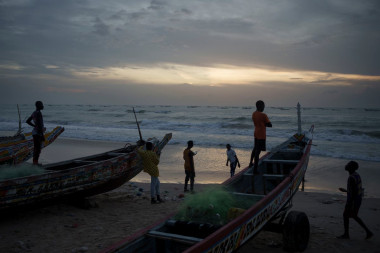How migrants endured 36 days at sea and left it ‘in God’s hands’
A month had passed when the first four men decided to jump.
Countless cargo ships had navigated past them, yet no one had come to their rescue. Their fuel was finished. The hunger and thirst were overwhelming. Dozens had already died, including the captain.
The voyage from the struggling Senegalese fishing town of Fass Boye to Spain’s Canary Islands, a gateway to the European Union where they hoped to find work, was supposed to take a week. But more than a month later, the wooden boat carrying 101 men and boys was getting blown further and further away from its intended destination.
No land was in sight. Yet the four men believed — or hallucinated — that they could swim to shore. To stay on the “cursed” boat, they thought, was a death sentence. They picked up empty water containers and wooden planks — anything to help them float.
And then, one by one, they leapt.
